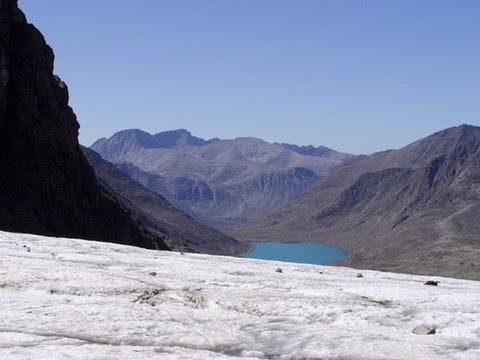
11 May 2022
A new project will explore the impacts of changes in climate, snow, ice, and water on ecosystems and indigenous peoples in northern Canada.
Led by researchers at the University of Birmingham, UK, and Queen’s University in Ontario, Canada, the project will provide vital knowledge co-created with Canada’s First Nations and Indigenous people across the north, whose livelihoods and culture are linked closely to ecosystems and the services these ecosystems provide (freshwater, food, clothing, shelter).
The challenges of climate and environmental change are hugely significant for people living in these territories. Ecosystem functioning is strongly influenced by factors such as reductions in seasonal snow cover and impacts on water systems because these changes affect the habitats for ‘iconic species’ such as caribou, ptarmigan, and Arctic charr, upon which Inuit peoples rely.
Understanding these changes is hampered by a lack of observations, making it difficult to estimate current rates of ice and snow melt, or how water is stored and moves through the terrestrial hydrological cycle.
Dr Nick Barrand, lead researcher on the project, said: “As climate and environmental change starts to affect habitats and spawning grounds of key species, the health, wellbeing and socio-economic status of Inuit peoples who rely on traditional methods of hunting, fishing and harvesting, becomes threatened. We hope to better understand and predict these changes and help communities to put in place strategies that will help them adapt.”
In order to gather observational data, the project will engage local communities through youth activities and ‘citizen science’ projects. These will include youth training, long-term grassroots monitoring, alongside innovative interdisciplinary methods and sensor technologies.
Professor David Hannah, co-investigator and holder of UNESCO Chair in Water Sciences at the University of Birmingham, said: “By working closely alongside communities in northern Canada, we seek to address important knowledge gaps, and build resources and approaches that will be of long-term benefit to Canada’s water-dependent ecosystems and indigenous people.”
The project, called IMAGINE (IMpacts of Cryosphere-Hydrosphere ChAnGe on Ecosystems and LIvelihoods in NorthErn Nunatsiavut, Canada), will take place over the next 3 years. It is funded by a £801K grant from the Canada-Inuit Nunangat-United Kingdom (CINUK) Arctic Research Programme, funded by UKRI, the Government of Canada, Fonds du Recherche Québec, and Inuit Tapiriit Kanatami.
